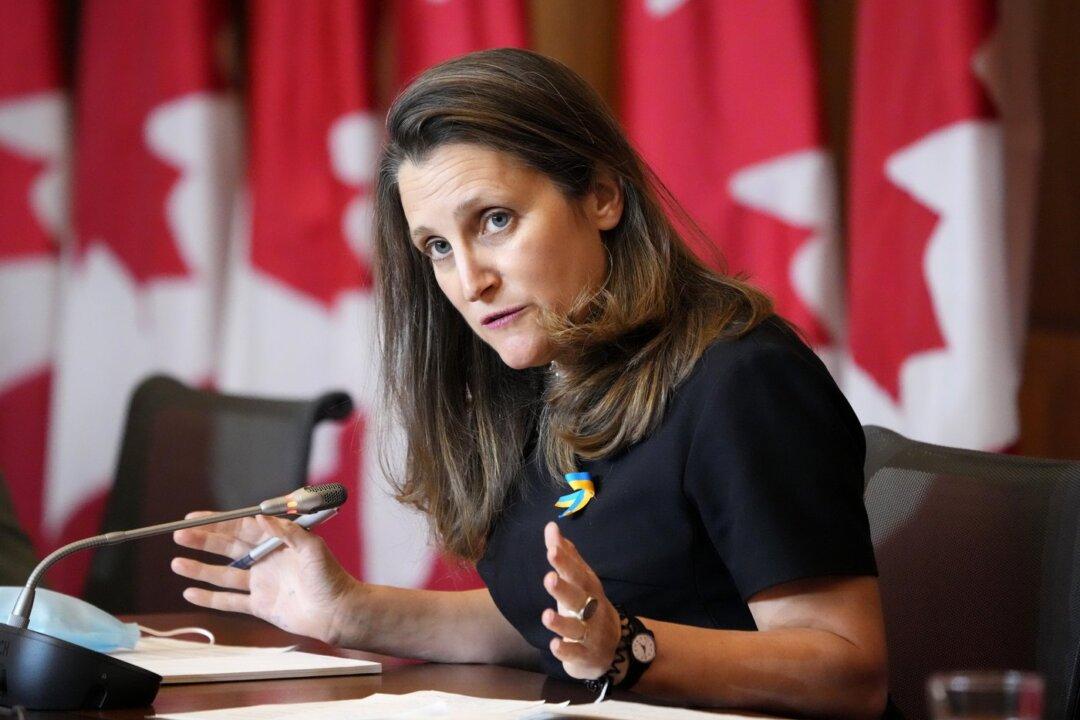Deputy Prime Minister and Finance Minister Chrystia Freeland laid out her government’s plan to address inflation and cost-of-living issues at a noon hour address in Toronto on June 16, detailing $8.9 billion in spending based on already-announced commitments.
Freeland said the federal government is helping to build more homes to address the issue of housing affordability; providing more affordable child care; focusing on fiscal restraint; enabling middle-class job growth; and providing direct help to Canadians.





